Latest Stories
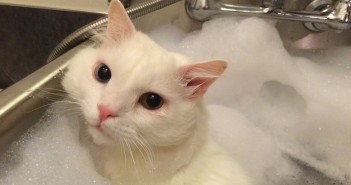
The Curious Case of the Kitty Known As Elrond
A paraplegic cat adopted from Egypt, Elrond was originally named Rania in the belief that he was a girl. Recently I have come to wonder if Elrond might not be female in some sense after all.
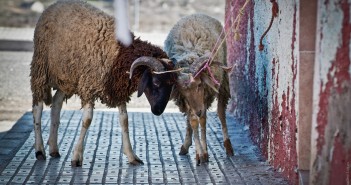
POETRY: Benedictus
Unveil that face
That gave us Dominion
To kill and conquer and burn
Whose hymns of praise
Are sung from books
That are bound in blood and skin.
…
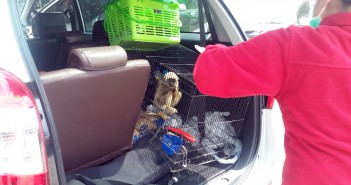
SCORPION and Police Bust Illegal Trade of Eight Rare Animals in Pekanbaru, Sumatra
Scorpion Foundation and Riau Province police busted an illegal trade of eight rare animals in Pekanbaru, Riau Province on Saturday, 27th of February 2016. Three traders were arrested, and eight animals, which are protected by Indonesian law, were confiscated, including six slow lorises, one siamang, and one gibbon.
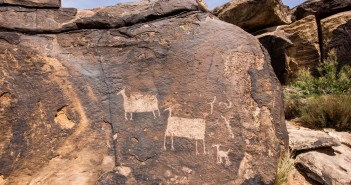
Ecofable: The Laws of the Earth
Once, long ago, the peoples of the Earth worshiped the animals. They perceived them to be magical creatures, supernatural beings, full of light, and Mystery. Their beauty was a source of inspiration and the people sought to emulate animals…
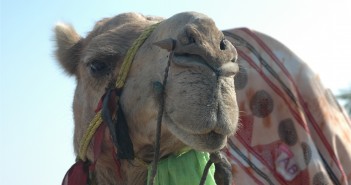
WAN Announces New Model Animal Welfare Act
The Model Animal Welfare Act will prove to be a useful guide and information source for countries seeking to introduce or improve their animal welfare legislation.
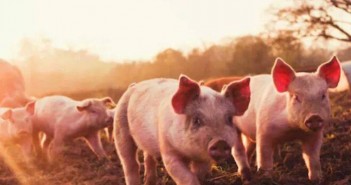
God Loves Pigs Too: Memorial Ceremony for Smithfield’s Slaughtered Pigs and Blessing of the Activists Who Are Their Voice
It is my opinion that animal activists who stand against factory farming are among the most courageous people in America. They must brave the light of their own convictions, and stand against ridicule, hatred, and violence toward both the animals and themselves for pointing out the obvious—that animals are living beings and deserving of respect.
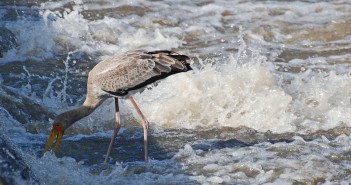
POETRY: River
River of ice
River of sky,
River awakening
Swollen with meltwater
Blind stirrings in your weed-green belly.
…
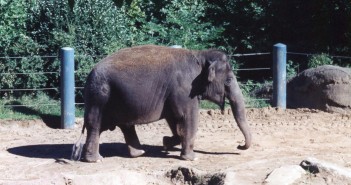
Asian elephant Chai, 37, dies at Oklahoma City Zoo following extended battle to retire her to a sanctuary
Chai’s life was tragic and characterized by deprivation. As those who knew her in Seattle and beyond mourn her loss, we also hope that her story inspires others to continue the fight to phase out elephant programs in zoos, so that not one more elephant suffers or dies simply to entertain humans.
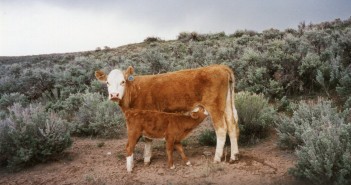
A Response to James McWilliams’ “When Vegans Won’t Compromise”
Focusing on how vegans can improve the conditions of animals by simply appearing more approachable to non-vegans is not the best use of our time when it comes to solving such a controversial issue with so many devastating consequences.
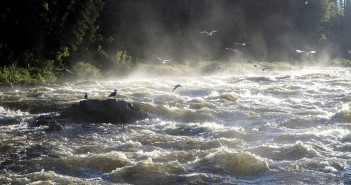
POETRY: Paradise Lost
Once
There were rivers of birds
Flowing, swirling,
Connecting light and beauty
Between Earth and Sky.
…
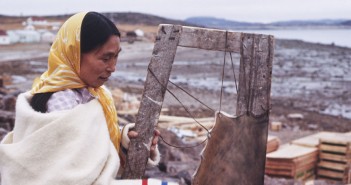
A New Ethic or an End to a Way of Life? A Roundtable Discussion Between Native Trappers and Animal Advocates
Questions about the way the fur trade affects Native peoples potentially place the animal rights movement in the awkward position of trying to help one oppressed class at the expense of another. In December 1988, The Animals’ Agenda hosted a roundtable discussion where both sides could meet face-to-face to explore their differences.
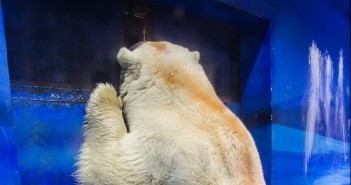
LETTER: Asia for Animals Condemns Abuse of Marine Life at Zhengjia Polar Ocean World
Asia for Animals condemns the poor living conditions for animals currently housed at the recently-opened “Zhengjia Polar Ocean World” facility in Guangzhou, China, and urges the owners to take immediate steps to improve the welfare of the animals and reconsider the exhibition of marine and arctic wildlife in this and future shopping malls.

“Popular Feeling and the Advancement of Science. Anti-Vivisection,” by H.G. Wells (1928)
In H.G. Wells and Animals, A Troubling Legacy, I struggled to reconcile the seemingly pro-animal themes of Wells’ famous stories with his own defense of vivisection later in life. In Wells’ 1928 essay Popular Feeling and the Advancement of Science. Anti-Vivisection, transcribed here, he details his own personal views on vivisection.

2015 – What ACTAsia achieved with your help
At the start of our tenth anniversary year, we are proud to review the progress ACTAsia has made in 2015. As we reach towards the next generation of children, vets, teachers and consumers, we are sure that by supporting the act of compassion, compassion is beginning to speak for itself.
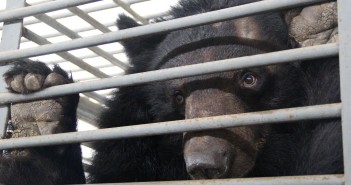
Wildlife draft amendment is a misstep for China but changes little
“The fact that within China there has been a sustained reaction from animal welfare groups to this news gives us hope – even amongst the concern that this legislation generates.”
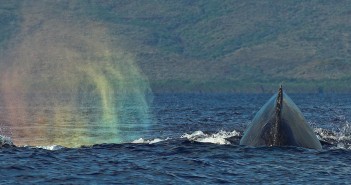
POETRY: Entering Nature
Yes, there is beauty
Enormity of beauty and truth.
But there is immense pain and suffering.
The wind and the clouds
And the rain
Bring messages, you know…
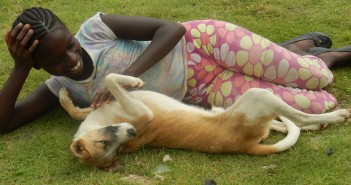
A Year of Victories for Animals in Liberia: LAWCS’ 2015 Report
For centuries, animals have been considered in Liberia as commodities and source of income without regard to their welfare. Since the establishment of Liberia Animal Welfare and Conservation Society, we continue to be active in promoting the welfare and rights of animals and people in Liberia.
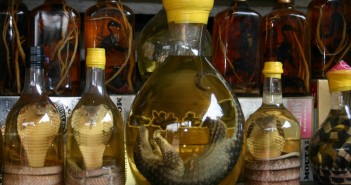
Seeing animals as a resource is a cruel substitute for real wildlife protection in China
This month, China’s National People’s Congress is soliciting public comments on a draft revision of the Wildlife Protection Law. Ironically, the law, supposedly designed to protect wildlife species, has witnessed the enormous rise of a wildlife exploitation industry unlike anything in China’s past.
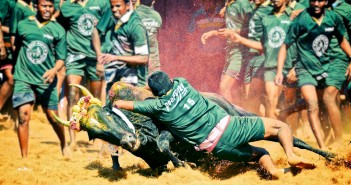
LETTER: Asia for Animals on Jallikattu and Bull Taming Events
Asia for Animals urges India’s Minister for Environment, Forests and Climate Change to take strong and immediate action to prevent bull taming/ racing, and other associated events, from taking place, by upholding the Supreme Court’s order, prioritising public safety and animal welfare, and India’s international image and reputation.
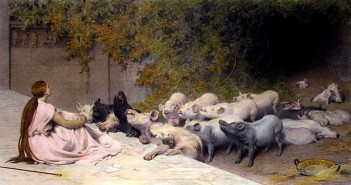
H.G. Wells and Animals, A Troubling Legacy
H.G. Wells’ 1896 novel The Island of Doctor Moreau is remembered as a powerful attack on vivisection, yet he himself would come to defend the practice later in life. How can we resolve the paradox between the strong pro-animal themes of Wells’ famous stories, and his own callousness toward animals harmed in the name of science?
